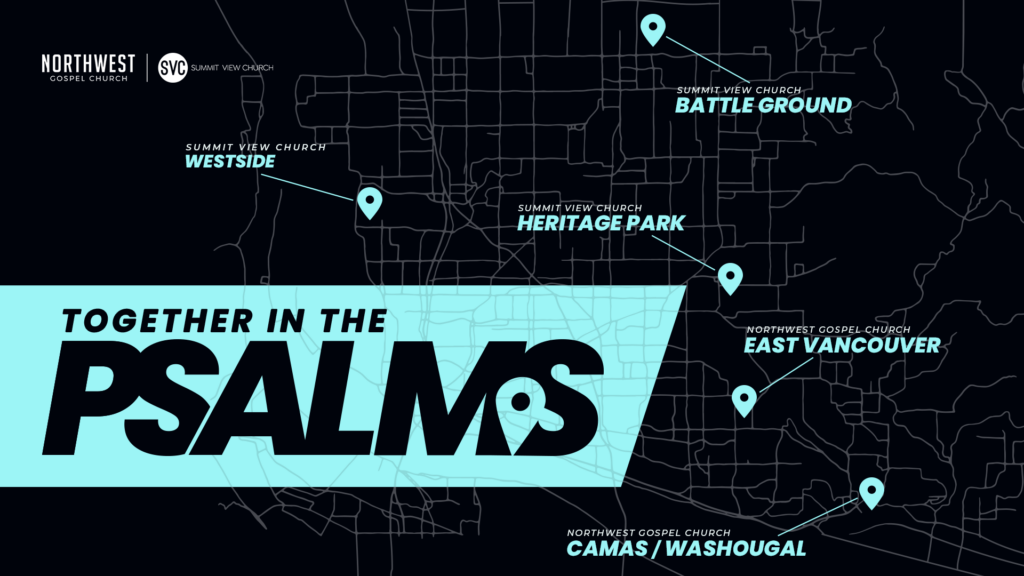
Series Information
The book of Psalms is one of the most beautiful pieces of poetry ever written. It engages us. It draws us in with its imagery, its raw emotion, and its mix of both problem and praise. The psalms feel like real life, and they model for us what it looks like to encounter God and experience His blessing and rule in our real lives at all times.
As we study the book, we will look at various types of psalms which will together give us a feel for the overall landscape of the book’s message and how it communicates that message. What we will see is that the psalms are not merely beautiful, but they are instructive for us, teaching us how we can communicate with God. In our study, we will find various different types of psalms, each of which offers a different example of what it might look like for us to meditate on God’s word and talk with Him about how our lives relate to His word.
Our hope for you is that as you study the psalms with us for the next ten weeks, you will get a taste for how good God’s word is and how transformative it can be for not only our actions, but our affections and imaginations as well. Our prayer is that your love for God, your communication with Him, and your joy in His kingship would grow and flourish. We pray that you would “taste and see that the LORD is Good.” (Psalm 34:8)
Discipleship Guide
Each week there will be an introduction to the week’s psalm, a personal study guide, and questions to talk about in your life group. Each section is designed to equip you in your own discipleship journey, learning and living God’s word in your everyday lives. The personal study guide is broken into four sections of questions. These correspond to the four steps of bible study taught by Dr. Ray Lubeck and they are:
Seeing what the text says
Understanding what the text means
Connecting the truths of the text to our lives
Responding to God in the way we think, feel, imagine, and act
You will notice that at the beginning of the book the personal study guide is mostly filled out, and that it will become progressively less so as the series goes on. This is intentional. The aim here is to model for you what to look for in the text, and have you practice what you are being shown a little more each week. As we go through this series, the methods we will learn relate to how to study Hebrew poetry.
